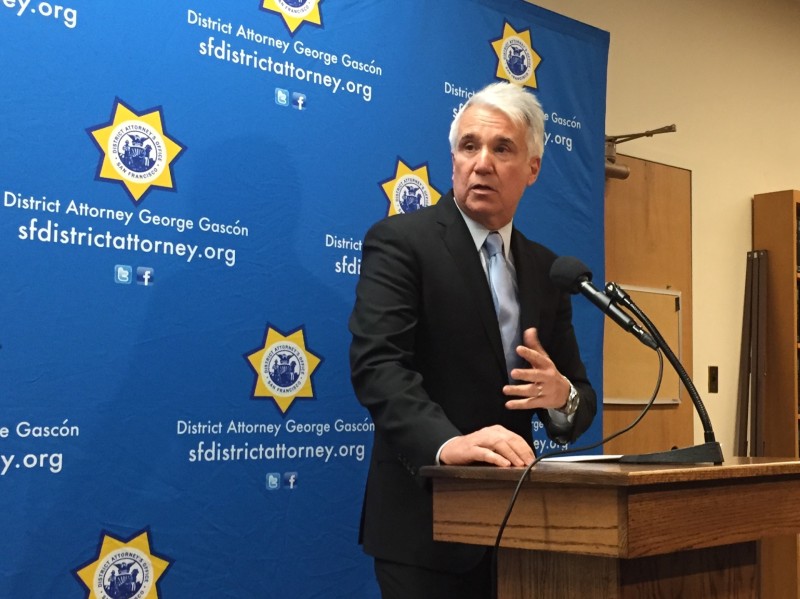S.F. District Attorney Launches Website Providing Years of Prosecution Data

San Francisco District Attorney George Gascón launched a website on Wednesday that provides reams of data on the types of cases his office prosecutes and the outcomes of the ones that go to trial.
Showcasing data going back to 2011, when Gascón started his job, DA Stat is a first-of-its-kind effort by a California county prosecutor's office to aggregate performance metrics and make them publicly available, the district attorney said.
Gascón said the project is an effort to increase accountability and shed light on a typically opaque part of the criminal justice system. When he started the job, he said, he was shocked by how little data was available, with no comprehensive way to track performance.
“It was very obvious to me that here we have a multimillion-dollar public law firm using government and taxpayer resources without really understanding where the money was being invested,” said Gascón, who plans to step down as San Francisco's district attorney at the end of this year.
"We directly or indirectly impact almost every aspect of our community," he added. "And I think, that being the case, we have a responsibility to put the data out there and have an honest dialogue of what should be done with that very precious resource."
The website, which was five years in the making, includes three dashboards, updated monthly, with tallies of arrests, prosecutions and types of crimes. It also aggregates trial outcomes by year, since 2014, including conviction rates and average trial lengths.
What's not included is demographic information, such as the race, gender and age of defendants, an important layer Gascón hopes his successor will work to add. The data also presents just a small slice of outcomes of the total prosecutions, because the vast majority of cases do not go to trial, but are instead resolved through plea deals or dismissed.
Although still a "work in progress," Gascón said, the database underscores how much prosecution priorities have shifted since he took office eight years ago.
Most notably, the numbers shows a significant drop in prosecutions of drug crimes, which made up 18% of all felony prosecutions in 2018, down from 52% in 2011.
"Conversely, you see an increasing emphasis on assault and robbery, as opposed to drugs," said Maria McKee, head researcher at the DA's office. "So we’re really de-emphasizing drug prosecutions in favor of prosecuting more serious crimes.”
That dramatic drop is due in large part to Proposition 47, a 2014 statewide initiative co-authored by Gascón, which reduced most personal drug possession crimes from felonies to misdemeanors.
"Look, I mean this is a report card on me," he said. "You will be able to take that data and use it either way. If you want to whack me because we’re not prosecuting drug addicts, I mean frankly, I say go for it. I welcome that, because you’re right, I’m not. But if you believe prosecutors should be doing that, then I’m a bad prosecutor."
Gascón, who briefly served as San Francisco's police chief before becoming district attorney, has long pushed for making law enforcement records more publicly available. Assembly Bill 1331, which he introduced this year with Assemblyman Rob Bonta, D-Oakland, would require local criminal justice agencies throughout the state to more uniformly report their data.
“It's a struggle to access quality data; we want to understand crime numbers statewide," he said, noting a lack of consistency in how local agencies report information. "It’s very difficult to have public policy conversations on the state level or local level if you don’t know what the numbers are."
